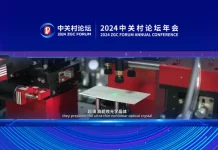In an effort to counter restrictions on Chinese companies imposed by the United States government, China is reportedly planning to introduce new policies to boost the domestic semiconductor industry.
As per the report coming from Bloomberg News, citing sources aware of the matter, the Chinese government is preparing broad support for the third-generation semiconductors for the five years through 2025.
![]()
In the draft of China’s fourteenth five-year plan, the government has added measures to bolster research, education, and financing for the semiconductor industry. The plan is expected to be presented to the country’s top leaders in October.
The development comes after the United States tightened restrictions on Huawei and its subsidiaries globally, along with some other Chinese companies. With the new sanctions, Huawei has been restricted from procuring new chipsets from American companies or using American technology to making their own SoCs.
EDITOR’s PICK: Tencent is working to ensure continued availability of its apps and games in India
Soon after the restrictions were announced, TSMC, one of the world’s leading contract manufacturer and maker of Huawei’s Kirin chipsets, stopped taking new orders. As restrictions kick in from this month, the Chinese giant hinted that the upcoming Kirin 9000 could be the company’s last flagship chipset.
But it seems that Huawei is likely to keep making a budget to mid-range chipsets with support from Semiconductor Manufacturing International Corp (SMIC). However, SMIC works on the 14nm node while the industry has shifted to 5nm process and companies are now working on developing the 3nm process.
While Chinese companies are not currently equipped to compete with the established players in the semiconductor industry when it comes to manufacturing but with the help of government policies and access to capital, it could be possible in the coming years.
UP NEXT: MediaTek Dimensity 1000C 5G chipset announced; powers LG Velvet in the US







